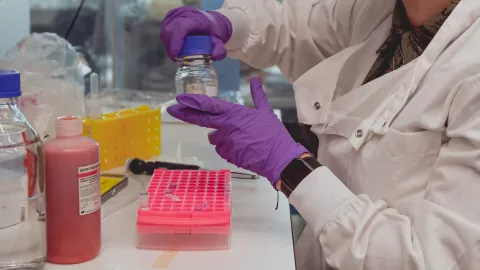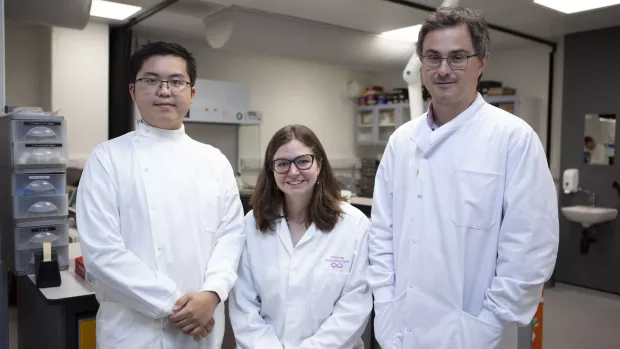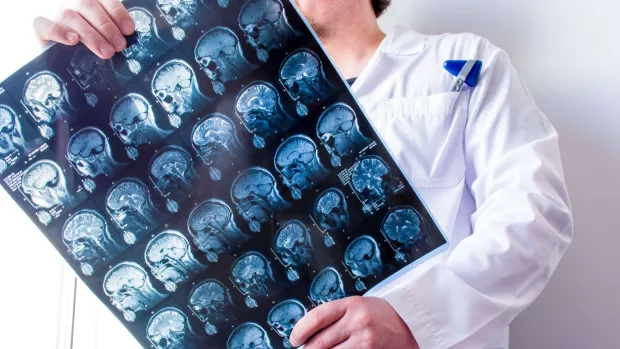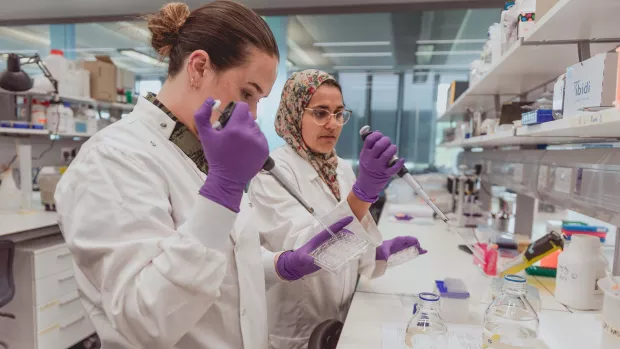
Our research priorities
In 2012 we began a project to put people living with MS at the heart of our research programme.
We worked with people with MS, families and health care professionals to find the top 10 MS research questions. This work was supported by the James Lind Alliance.
These questions support our Research Strategy, which helps us decide which research projects to fund. You can download our 2018-2022 Research Strategy and 2023-2024 Research Strategy Extension documents from the sidebar.
Find out more about our research priorities
Our top 10 priorities
- Which treatments are effective to slow, stop or reverse the accumulation of disability associated with MS?
- How can MS be prevented?
- Which treatments are effective for fatigue in people with MS?
- How can people with MS be best supported to self-manage their condition?
- Does early treatment with aggressive disease modifying therapies (DMTs) improve the prognosis for people with MS?
- Is Vitamin D supplementation an effective DMT for MS?
- Which treatments are effective to improve mobility for people with MS?
- Which treatments are effective to improve cognition in people with MS?
- Which treatments are effective for pain in people with MS?
- Is physiotherapy effective in reducing disability in people with MS?
These priorities will complement our research strategy. We will continue to support research into the causes of MS, and treatments and care for people living with MS.
What we're doing to answer these questions
We're committed to funding high quality research that answers the key questions we have as a community.
We are doing this in a number of ways, including funding new research projects every year through our open grant round. We've also brought together researchers, health care professionals and people with MS to discuss some of these priorities as part of our Clinical Trials Network.
Right now these groups are deciding the best way to:
- test the benefits of vitamin D supplements
- find the best treatments for fatigue
- and to understand the benefits of early treatment with aggressive DMTs.
How we set our priorities
We worked closely with the James Lind Alliance and people with MS to find our top 10 research priorities, which involved a number of steps:
- Question gathering: In November 2012 we asked people to submit their key research questions. This survey was planned and reviewed by a group of people with MS, carers and health care professionals. 507 people completed the questionnaire, sending in over 1,000 research questions.
- Sorting: The questions were grouped into topic areas by the team at the James Lind Alliance. Questions that had already been answered were removed. This gave us 67 key questions.
- Prioritising: In April 2013, 669 people voted for the questions most important to them.
- Narrowing down to 10: In July 2013 we invited a group of people with MS, family members and health care professionals to narrow the 30 most voted for questions to our top 10.
You can read more about the process in our priority setting partnership protocol.
Partners and supporters
We'd like to thank our partners and supporters for helping us set our research priorities. These include:
- UK MS Specialist Nurses Association
- Neuro Therapy Network
- Association of British Neurologists
The priority setting process was also supported by:
- Ann Daly – Independent Information Specialist
- Sally Crowe – The James Lind Alliance
- Mark Fenton – UK DUETs



